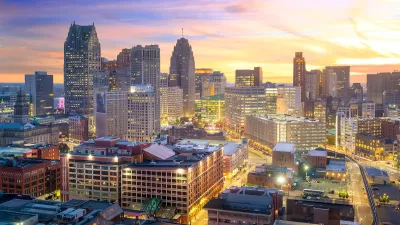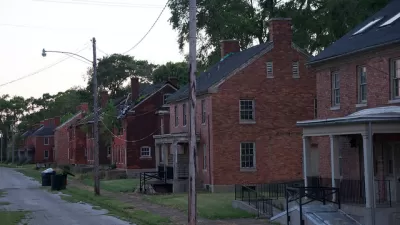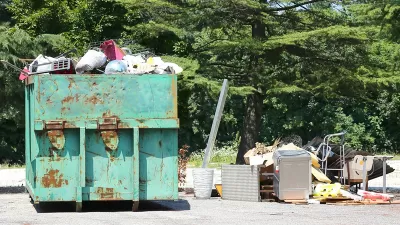Flint, Michigan is another ailing city that is considering demolishing entire neighborhoods and returning them to nature as a way to save the rest of the city from blight.
Planned shrinkage became a workable concept in Michigan a few years ago, when the state changed its laws regarding properties foreclosed for delinquent taxes. Before, these buildings and land tended to become mired in legal limbo, contributing to blight. Now they quickly become the domain of county land banks, giving communities a powerful tool for change.
Indianapolis and Little Rock, Ark., have recently set up land banks, and other cities are in the process of doing so. 'Shrinkage is moving from an idea to a fact,' said Karina Pallagst, director of the Shrinking Cities in a Global Perspective Program at the University of California, Berkeley. 'There's finally the insight that some cities just don't have a choice.'
While the shrinkage debate has been simmering in Flint for several years, it suddenly gained prominence last month with a blunt comment by the acting mayor, Michael K. Brown, who talked at a Rotary Club lunch about 'shutting down quadrants of the city.'"
Thanks to Carl Morgan
FULL STORY: An Effort to Save Flint, Mich., by Shrinking It

Planetizen Federal Action Tracker
A weekly monitor of how Trump’s orders and actions are impacting planners and planning in America.

Map: Where Senate Republicans Want to Sell Your Public Lands
For public land advocates, the Senate Republicans’ proposal to sell millions of acres of public land in the West is “the biggest fight of their careers.”

Restaurant Patios Were a Pandemic Win — Why Were They so Hard to Keep?
Social distancing requirements and changes in travel patterns prompted cities to pilot new uses for street and sidewalk space. Then it got complicated.

Platform Pilsner: Vancouver Transit Agency Releases... a Beer?
TransLink will receive a portion of every sale of the four-pack.

Toronto Weighs Cheaper Transit, Parking Hikes for Major Events
Special event rates would take effect during large festivals, sports games and concerts to ‘discourage driving, manage congestion and free up space for transit.”

Berlin to Consider Car-Free Zone Larger Than Manhattan
The area bound by the 22-mile Ringbahn would still allow 12 uses of a private automobile per year per person, and several other exemptions.
Urban Design for Planners 1: Software Tools
This six-course series explores essential urban design concepts using open source software and equips planners with the tools they need to participate fully in the urban design process.
Planning for Universal Design
Learn the tools for implementing Universal Design in planning regulations.
Heyer Gruel & Associates PA
JM Goldson LLC
Custer County Colorado
City of Camden Redevelopment Agency
City of Astoria
Transportation Research & Education Center (TREC) at Portland State University
Camden Redevelopment Agency
City of Claremont
Municipality of Princeton (NJ)





























